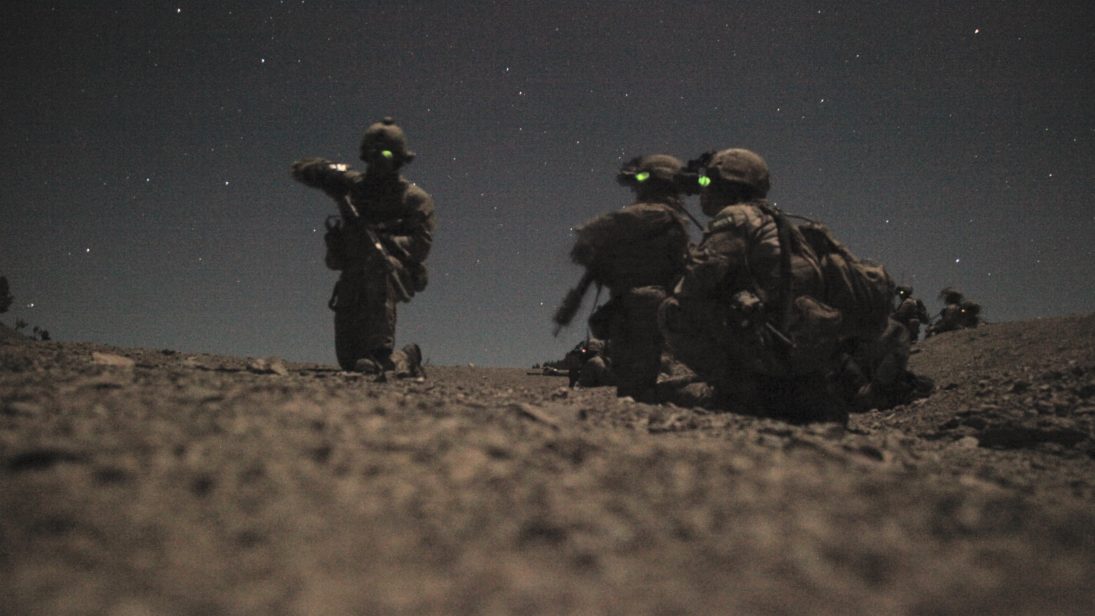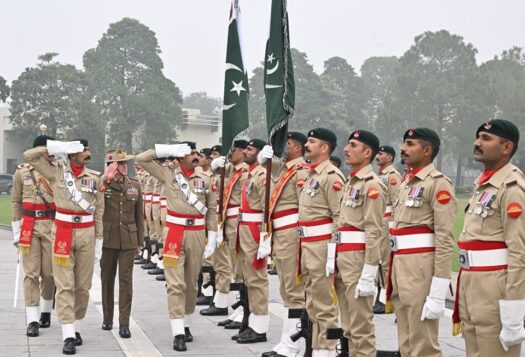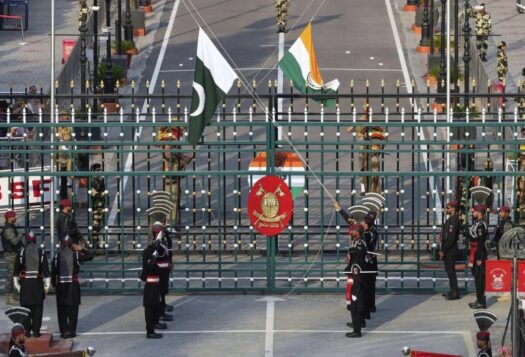
Authored by former intelligence agency chiefs from India and Pakistan, the newly released book, The Spy Chronicles: RAW, ISI and the Illusion of Peace, has already begun causing uproar in Pakistan’s intelligence and military community. The book is a series of dialogues, mediated by journalist Aditya Sinha, between former Pakistan Inter-Services Intelligence (ISI) chief Lt. Gen. (retired) Asad Durrani and former Indian Research and Analysis Wing (RAW) chief A.S. Dulat.
General Asad Durrani has long been considered a controversial figure in Pakistan, following an incident in which he called the Army Public School attack of 2014 and other acts of terrorism committed in Pakistan “collateral damage…the price to be paid for the high-stakes game” of backing the Taliban in Afghanistan. Durrani, who headed ISI from August 1990 through March 1992, was summoned to the Pakistan Army General Headquarters on Monday, for “violating the military’s code of conduct” through the publication of this book. As Durrani has been placed on an Exit Control List (ECL) and is set to face a formal court of inquiry probing into the matter, it is necessary to review the heart of this controversy: what about The Spy Chronicles is bad enough to elicit such a strong response?
Regional Interests
The authors being two former intelligence chiefs from India and Pakistan, it was expected that the Kashmir issue would be discussed in detail. Durrani and Dulat’s conversations on Kashmir form much of this book, with six chapters exclusively focusing on India and Pakistan’s roles in the disputed territory. Interestingly, in the book Durrani opines that the current status quo in Kashmir isn’t actually “unfavorable to Pakistan,” suggesting that “Pakistan could be comfortable with the unrest except that Kashmiris died.” His proposed Kashmir policy takes shape when he suggests, “…Because of what is happening in the Valley, Pakistan should simply sit back and watch the fun.” Dulat, on the other hand, declares that if Kashmiris were happy, then they would not turn to Pakistan, as Kashmiris need Pakistan only when they’re in “trouble.”
In this way, the two spy chiefs are in agreement that India has successfully laid its claim on Kashmir, while Pakistan may not be quite as wedded as it likes to convey to the disputed territory. This runs contrary to the official stance of Pakistan towards Kashmir, which upholds that the region is not an integral part of India, and that the Pakistani government lends “unwavering political, moral, and diplomatic support” to the cause of Kashmiris.
Lt Gen Asad Durrani, Retired was called at GHQ today to explain his position on recently launched book ‘Spy Chronicles’. A formal Court of Inquiry headed by a serving Lt Gen has been ordered to probe the matter in detail. Competent authority approached to place his name on ECL.
— Maj Gen Asif Ghafoor (@OfficialDGISPR) May 28, 2018
When high-ranking intelligence officials from India and Pakistan meet, Afghanistan is another inevitable topic for discussion. Yet, for such a controversial subject, there is a surprising degree of consensus between Dulat and Durrani within The Spy Chronicles. In terms of the strategic calculus, the former RAW chief couldn’t have been more realistic when suggesting, “Afghanistan is as crucial to Pakistan as Nepal is to us.” On this, the two sides are in agreement that any Indian interference in Afghanistan would be comparable to Pakistan meddling in Nepal.
The Capture of Bin Laden
The Spy Chronicles also covers some of the background information on Operation Geronimo, the operation that extracted al-Qaeda chief Osama bin Laden from Pakistan. General Durrani has asserted that the Pakistani military cooperated with U.S. forces to locate and remove Osama bin Laden, based on the fact that General Ashfaq Parvez Kayani, the Army Chief of Pakistan at the time, had met with United States officials days before the raid that killed bin Laden. According to Durrani, Kayani met with the Central Command Chief General James Mattis on April 8, 2011; with the U.S. Chairman of the Joint Chiefs of Staff Admiral Mike Mullen on April 20; and most importantly, with the U.S. Commander for Afghanistan General David Petraeus on April 26. For perspective, then-President Obama signed the orders for Operation Geronimo on April 29.
Perhaps it can be argued that being open about having cooperated with the United States doesn’t serve Pakistan’s interests. If the Pakistani establishment were to be open about the alleged cooperation that led to the elimination of bin Laden, then it is possible that certain segments of Pakistani society might rally against the Pakistan Army. In fact, the majority of Pakistanis disapproved of the killing, and a major mosque located in the center of Islamabad, along with its associated seminaries around the city, has since openly referred to Osama bin Laden as its hero. To avoid domestic condemnation, secretive cooperation with the United States may have been the best option the Pakistani military could envisage at that point in time.

Troubled Waters for Durrani
Durrani seems to have entered into troubled waters by departing from Pakistan’s stance on two fronts: the Kulbhushan Jadhav episode and the division of India and Pakistan in 1947.
Both Durrani and Dulat also seem to share the same opinions on the Jadhav episode, suggesting that espionage is a reality, and one that is unlikely to end. Both men also agree that the episode could have been handled better on each side, with Durrani even saying that ISI should have “[sent] RAW a message that we had him, extract all the overt and covert benefits, and at some stage return him ‘at the right price’.” Dulat, the former chief of RAW, stated that if Jadhav and his operation were, in fact, backed by the intelligence agency, then it is a “pretty sloppy operation.” Durrani’s agreement with Dulat on such a polarizing issue in Pakistan is one probable reason for the Army’s strong reaction to the general.
Besides this sense of agreement with his Indian counterpart on the Jadhav incident, what may have led General Durrani into contentious territory with the Army are his views on the Akhand Bharat (i.e. Greater India or Undivided India) Confederation Doctrine on the reintegration of the subcontinent. In The Spy Chronicles’ chapter on the matter, General Durrani sheds doubt on the practicality of the 1947 division of India and Pakistan, arguing that partition “led to many problems” with the countries “forever fighting” while “Akhand Bharat isn’t a fantasy that nowadays some are thinking.” What the general is implying here is that the partition of India and Pakistan may not have been the best option for Pakistan’s interests, while the division itself may not be permanent. As Dulat responds to Durrani in the book, a similar idea is often proposed by extreme right hardliners in India. However, given the popular Pakistani view that partition was justified and necessary to protect the rights of Muslims in South Asia, these daring claims are a likely reason why the Army has ordered a court of inquiry against General Durrani.
Noteworthy Bonhomie
Whatever the future holds, the fact remains that the bonhomie between the two former spy chiefs from India and Pakistan is noteworthy at a political moment in which relations are strained. Optimistically, The Spy Chronicles offers a glimmer of hope for improved relations between policymakers in Islamabad and New Delhi. If Dulat and Durrani could form such a cordial relationship and have respect and affection for each other, then the atmosphere of hate between the two nuclear neighbors may be surmountable.
***
Image 1: ResoluteSupportMedia via Flickr
Image 2: Aamir Qureshi via Getty


